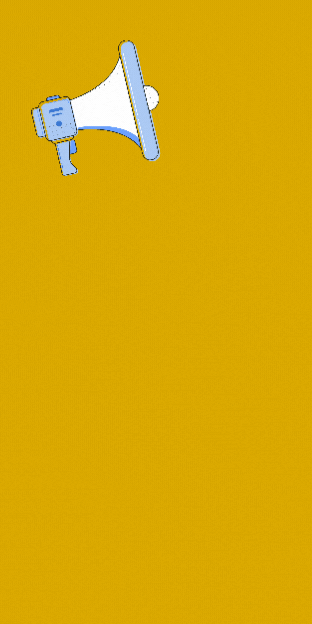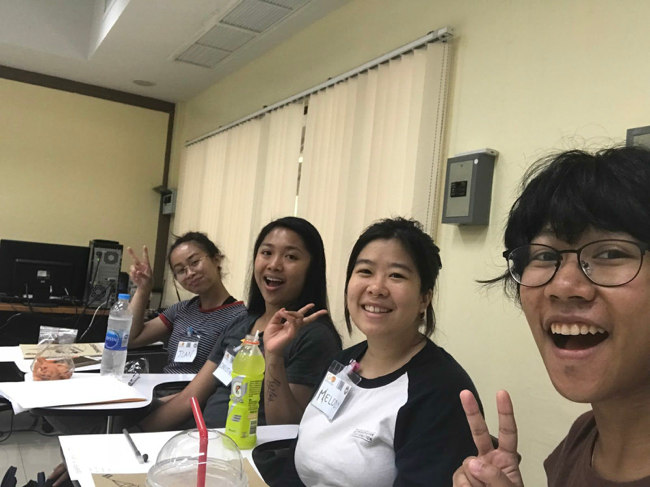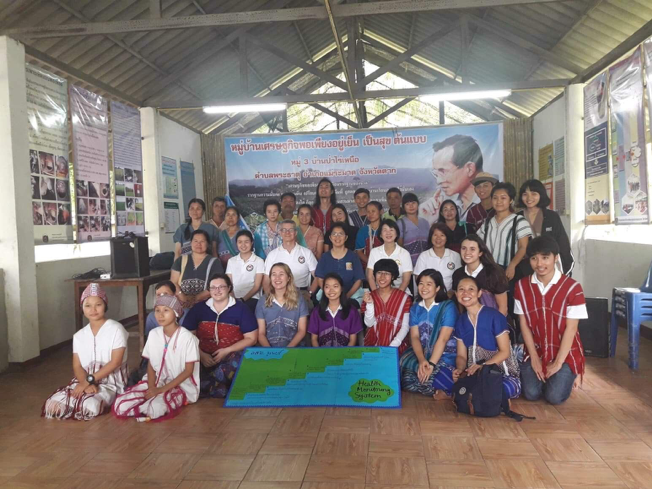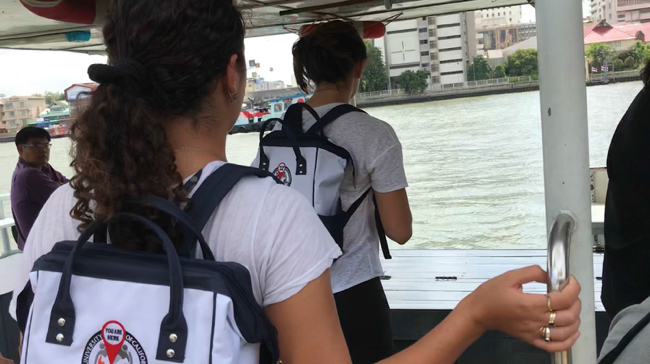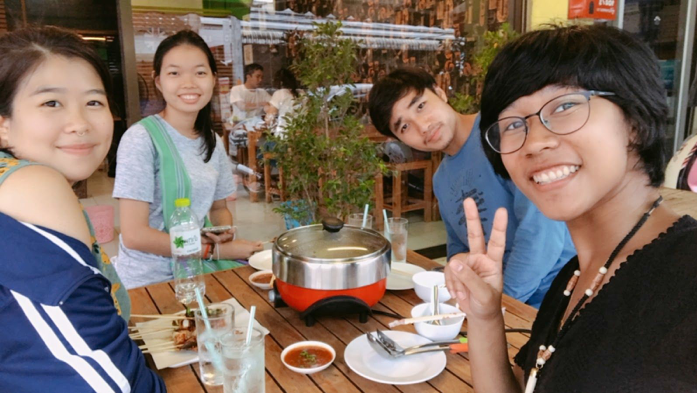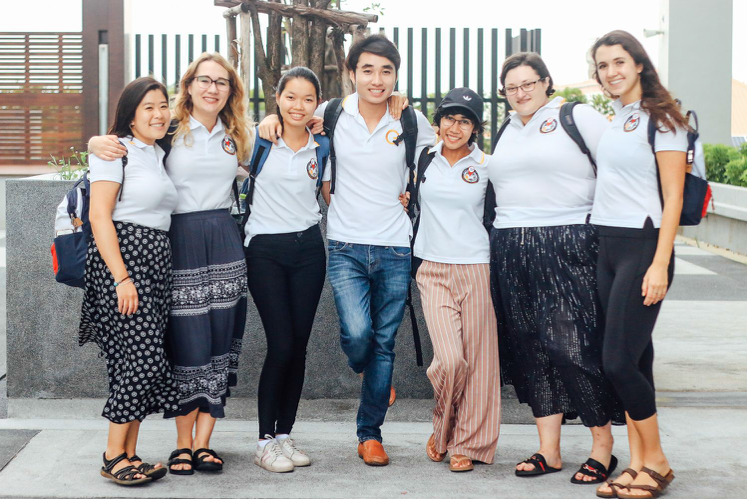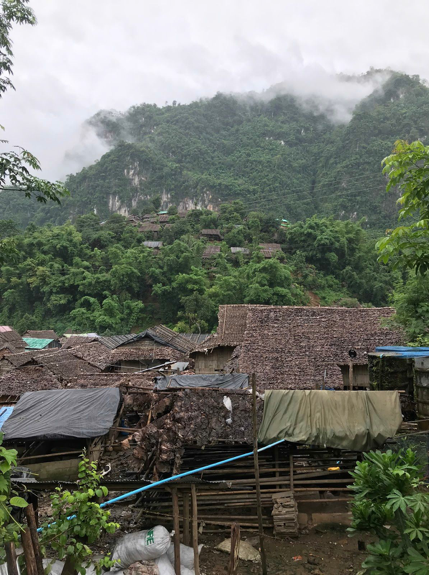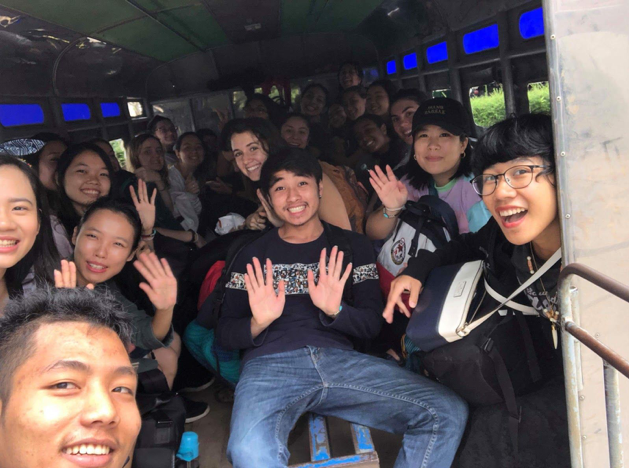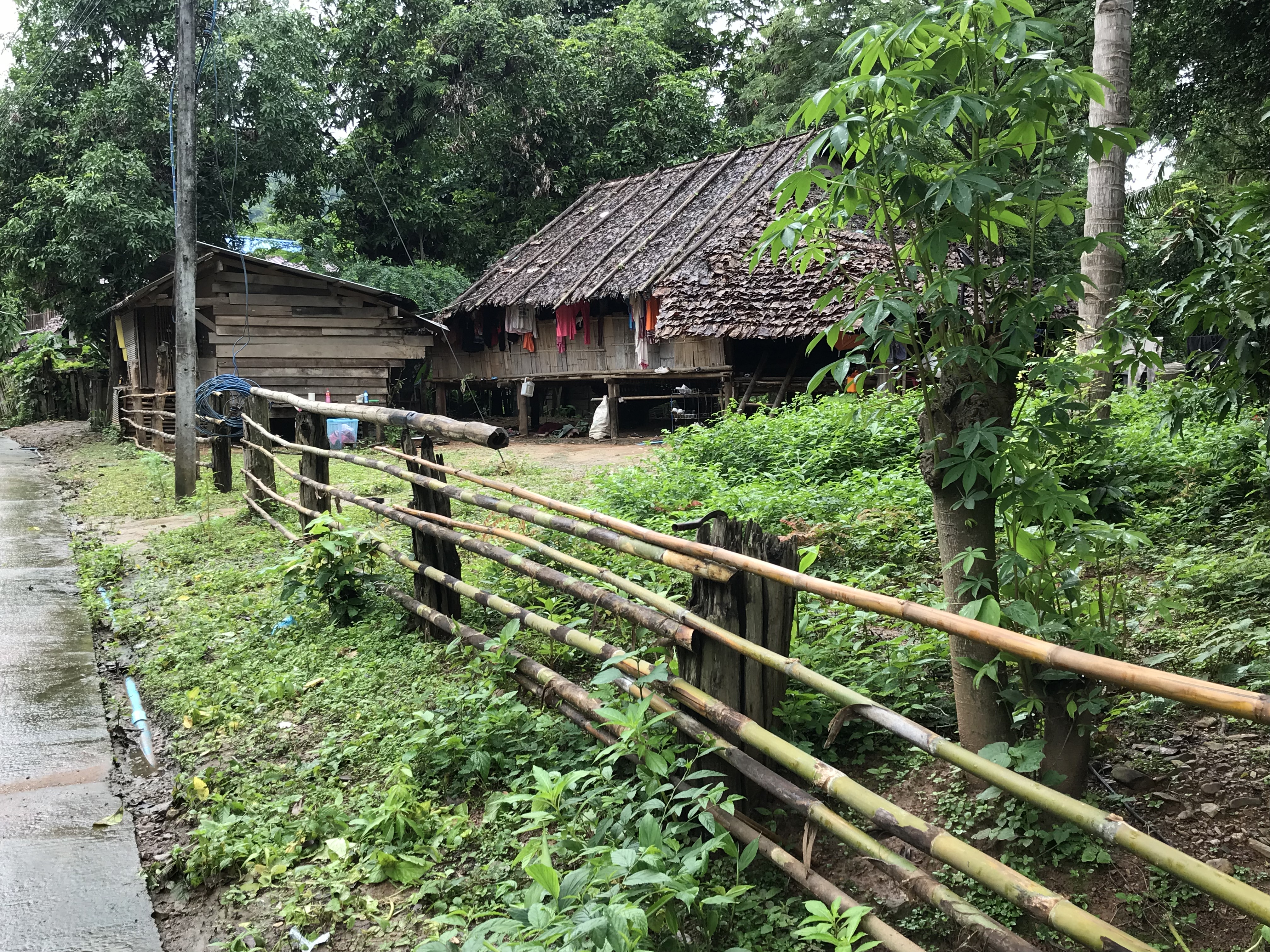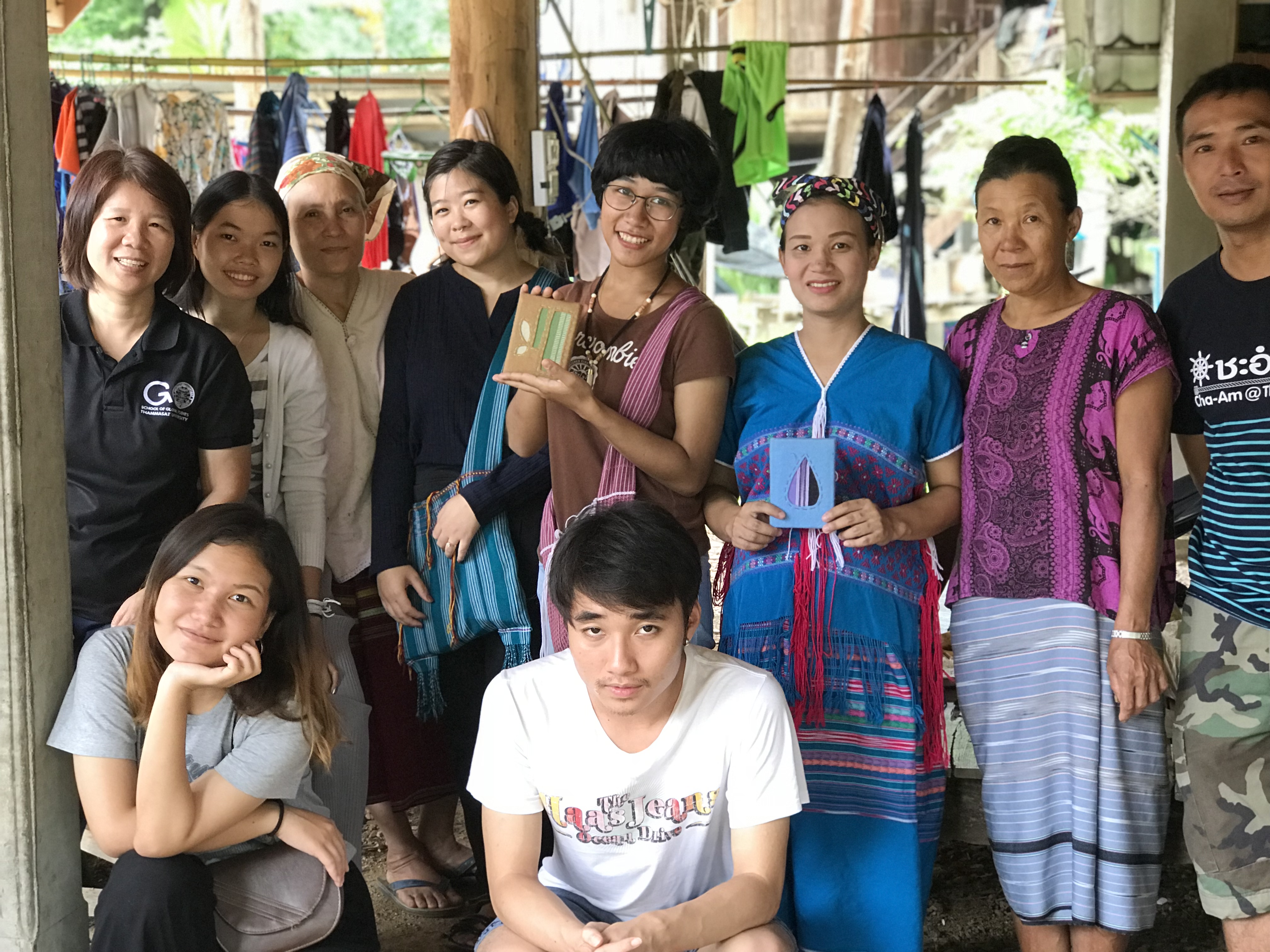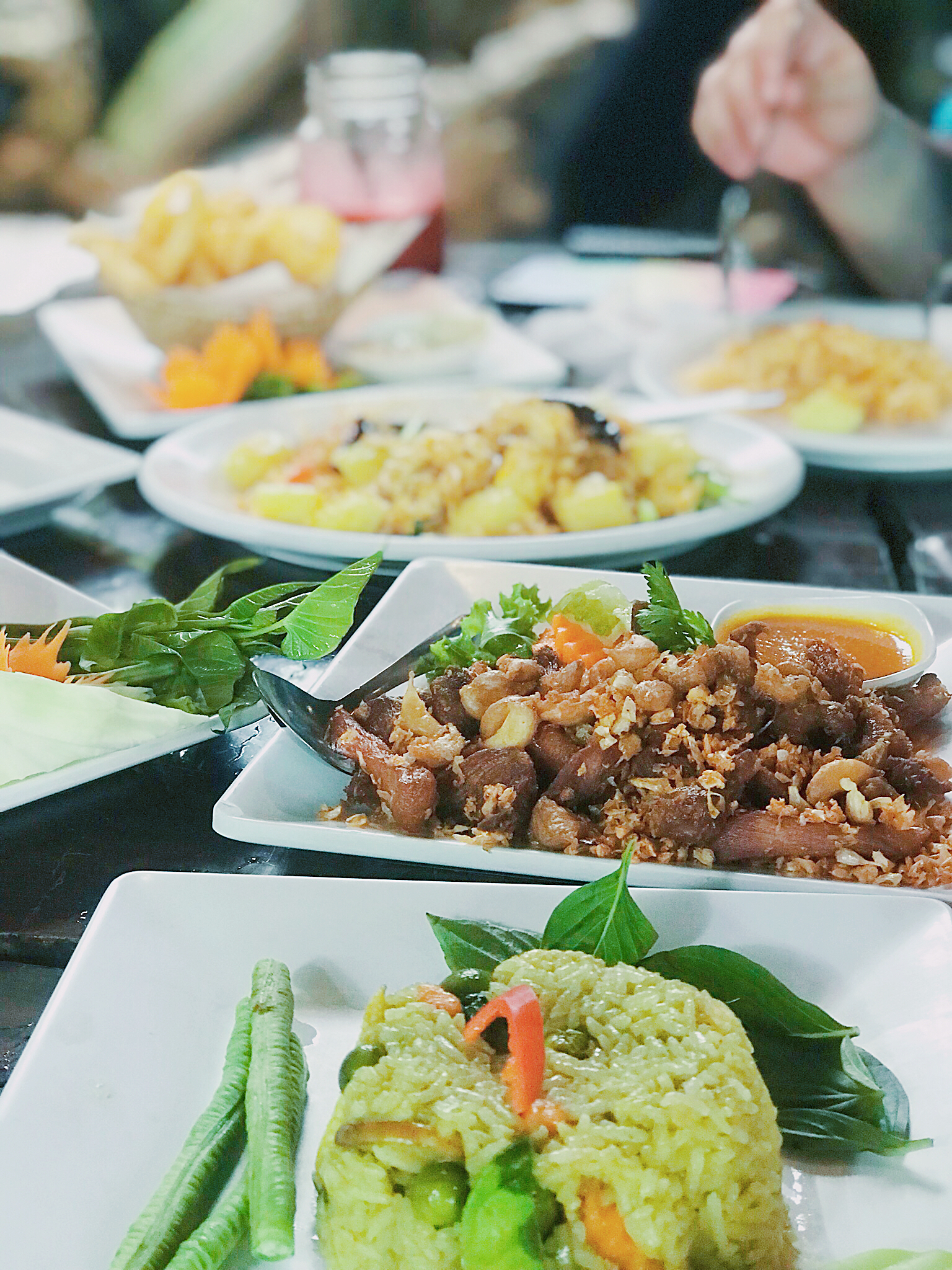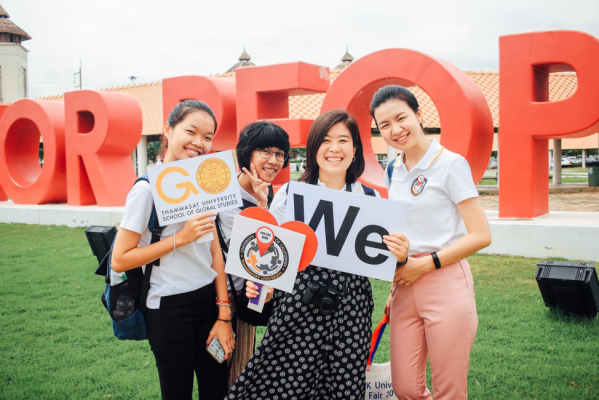
Q: What made you decide to study abroad? Why did you choose your program?
A: Personally, the career choice I made requires evidence and proof of human kindness. I’ve always wanted to be a medical professional that worked with refugees on a global scale but I believed the first step to this dream was to actually participate in a program that would prepare me for this experience. I felt I did not do enough community service or that I did not have a chance for internships so I thought enrolling in a study abroad program would make me engaged. I felt Thailand Public Health Summer program was perfect exactly for my needs and my career pursuit. Moreover, I felt a moral duty to serve people of my ethnicity, Burmese people and the Karen people.
Q: What was the highlight of your experience?
A: The homestay at Mae Sot was the most memorable part of the program. I’m also very fortunate to have met and talked to Dr. Cynthia Maung, she inspires me very much. I also find my new friendships with other UC students and Thammasat students to be my most treasured memories.
Q: What was your greatest challenge and how did you overcome it?
A: I imagine that other groups had obstacles that hindered the process but it all depends on what transpires out of the homestay communities. Sometimes, the community may not be willing to participate or they do not see the significance of certain ideas you may present. The communities may view you like tourists rather than developers. It can be frustrating but it’s most important to keep an open heart, open mind even in these kind of tight situations.
Surprisingly for me, the “greatest challenge” was not in the homestay or the course but it involved the dynamics in my team. Certain people’s ideas and opinions dominated the discussion and I felt too intimidated to speak up. There were times a certain team member would want to force an opinion out of me and it made me so uncomfortable. I have never really confronted this problem since I’m a very passive person. However, it was thanks to my good friends that I was able to confess my true feelings with them.
Q: How did the coursework compare to UCM?
A: I did not take any public health course in UCM so I cannot make much judgement. The materials taught were kind of introductory but still containing substantial and vital information. Such topics we learned about included Anthropology, Border Health, Migration, Human Rights, and Thai-Burmese history. The grading is based on two presentations, the daily journals, and an exam. It’s definitely way more loose than STEM courses!
Q: What did you get out of your study abroad experience?
A: There was a lot that I learned academically and spiritually. Of all the lessons and philosophies I’ve learned in life, some lessons could only have been obtained through this experience in Thailand; it can’t be transferred from a textbook. As a naive STEM student, I learned of many things I have never thought of before but I developed a deeper understanding of human health and the political nuances with global health. After this study abroad experience, my work ethics have been refined to be culturally sensitive, open hearted, and participatory. Personally, I have become more aware of my emotions and more secure in my identity as a Burmese American.
Q: What advice would you give to a student considering study abroad?
A: Don’t hesitate to seize any opportunity that could take you a step closer to your goals. Expect fun and new experiences but also expect challenges along the way. No matter what country you take an interest in, keep an open mind and let go of any preconceived ideas you may have. More importantly, do not try to make sense of another’s culture by your own means. Sometimes, there may be something you don’t like about another culture but you don’t need to feel obligated to participate in it, especially if it makes you uncomfortable.
Q: Describe a typical day for you abroad.
A: In Bangkok, we walked from Amarin Mansion to Thammasat University and then would take a ferry across a river which takes a total of 30 minutes. Class started at 9am and the lectures would go on for 4 hours with an hour lunch break in between. During lunch, I just ate within the campus proximity or at the canteen. After lecture, we had an optional Thai Language tutorial that ended at 5pm. We only had one free weekend. It was hot and humid but there was only one time it rained after class. I usually had instant ramen, KFC, or traditional Thai food at the nearby restaurant “Food 4 U” for dinner.
In Mae Sot, everyday was different. If we did have “class,” (which was not often) it would start at 10am and we would occupy the cafeteria room of J2 Hotel. The “class” would end at 1pm ~ 2pm. Otherwise, the schedule is up to us, our perceptors, and our community as necessary for our project. We had two free weekends. For dinner, I usually went to local restaurants or went to the local mall called Robinson’s to eat lunch or dinner. I often went to 7-Eleven alone at night (10pm) to pick up some medicine and snacks however, I strongly recommend against doing that.

